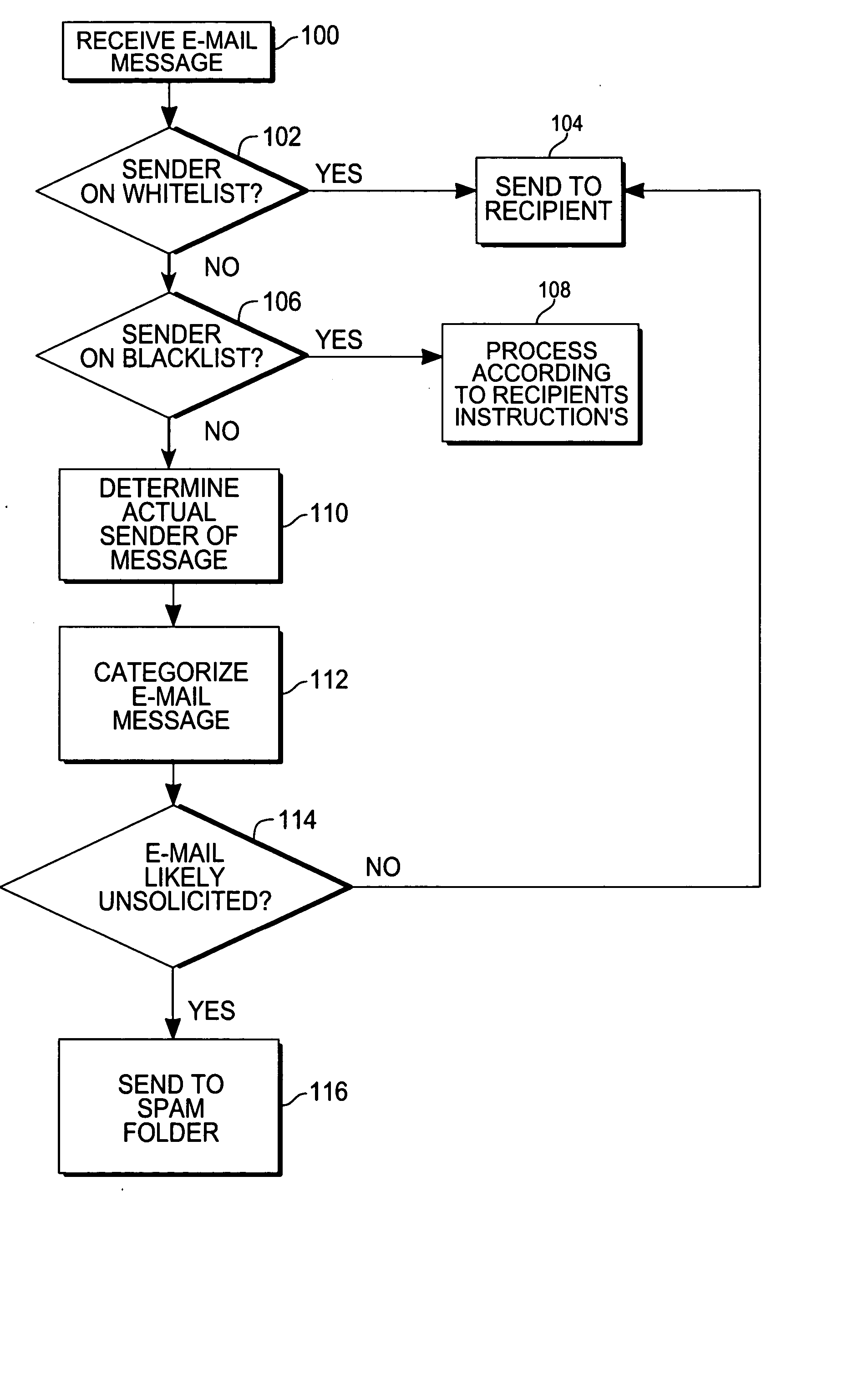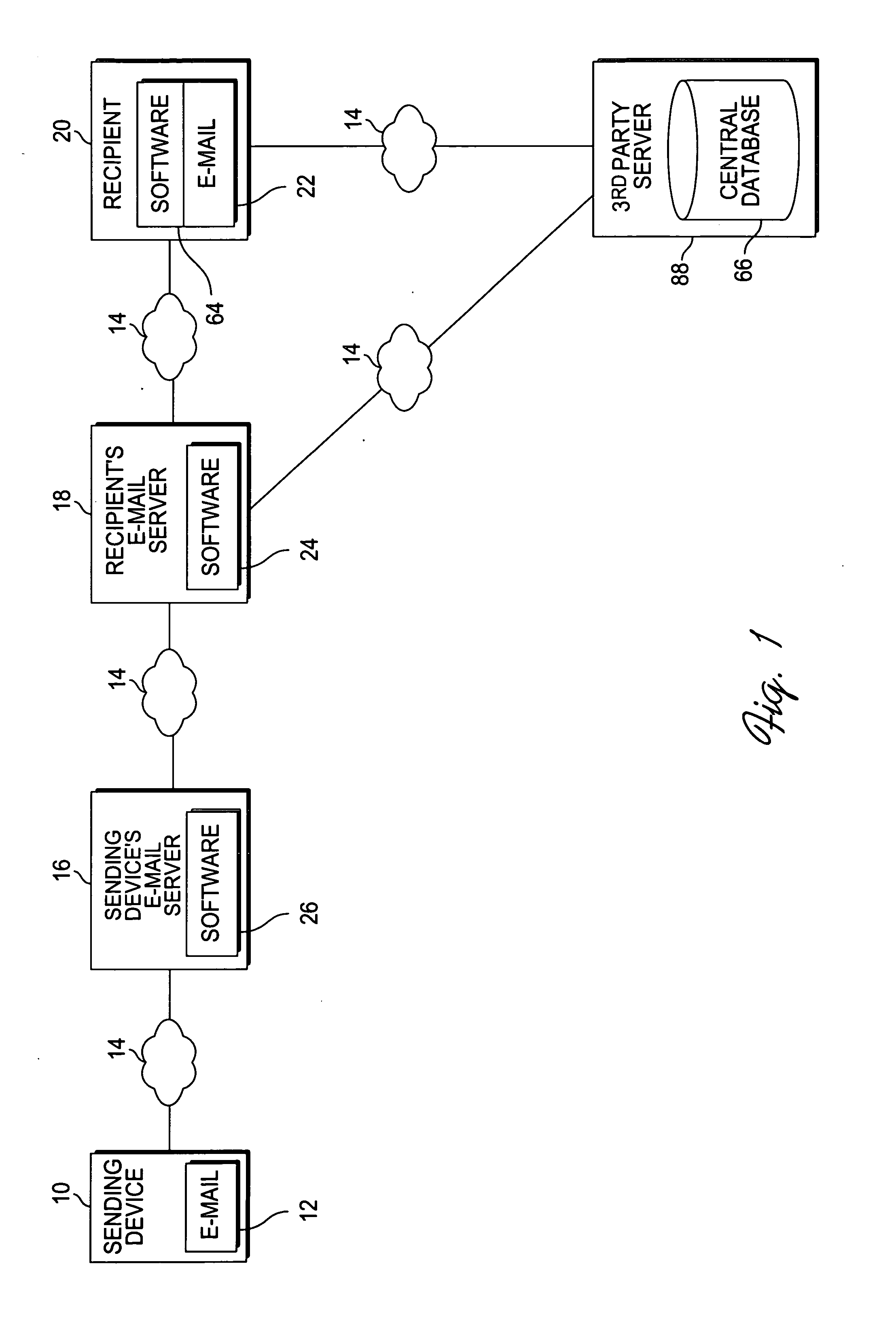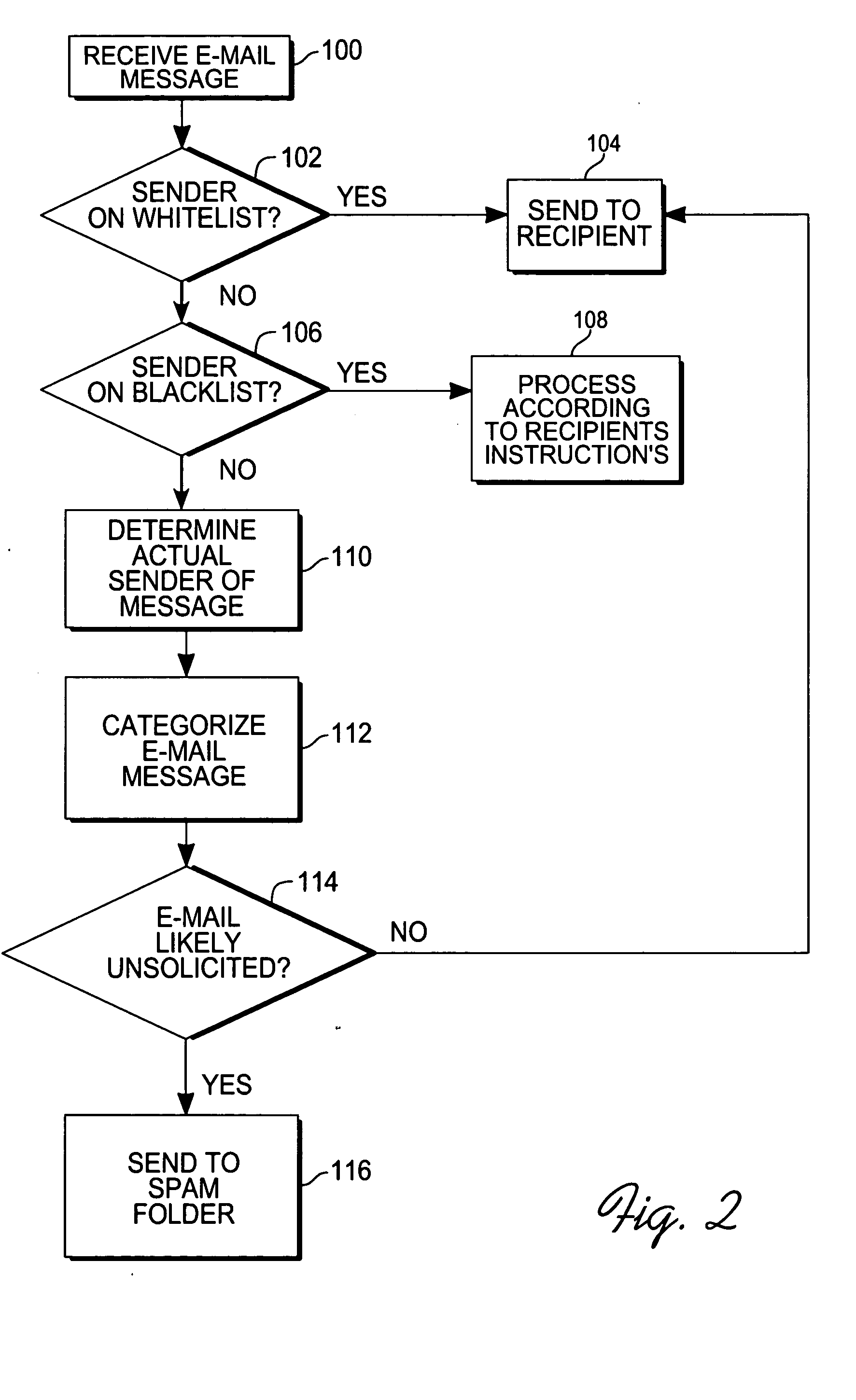Method for creating a whitelist for processing e-mails
a technology for email messages and whitelists, applied in the field of data communication, can solve the problems of reducing junk mail, e-mail users can be annoyances, and spam, and the proliferation of junk mail,
- Summary
- Abstract
- Description
- Claims
- Application Information
AI Technical Summary
Benefits of technology
Problems solved by technology
Method used
Image
Examples
Embodiment Construction
With reference to FIG. 1, one embodiment of the invention has a sending device 10, for instance, a personal computer though the sending device could be any computer device capable of sending messages in a network, which is running an e-mail software program 12, such as Outlook™, Eudora™, etc. (The sending device 10 is operated by a user.) The sending device 10 is connected to the sending device's e-mail server 16 via a network 14, such as the Internet. The sending device's e-mail server 16 is running software 26 for handling e-mail messages sent by the sending device 10. SMTP is generally used to send messages, while another protocol such as POP3 or IMAP is used for receiving messages; these protocols may run on different servers and the sending device's 10 e-mail program 12 generally specifies both an SMTP server or a POP3 or IMAP server for handling messages. The sending device's 10 e-mail messages are sent through a network 14 from the sending device's e-mail server 16 to the re...
PUM
 Login to View More
Login to View More Abstract
Description
Claims
Application Information
 Login to View More
Login to View More - R&D
- Intellectual Property
- Life Sciences
- Materials
- Tech Scout
- Unparalleled Data Quality
- Higher Quality Content
- 60% Fewer Hallucinations
Browse by: Latest US Patents, China's latest patents, Technical Efficacy Thesaurus, Application Domain, Technology Topic, Popular Technical Reports.
© 2025 PatSnap. All rights reserved.Legal|Privacy policy|Modern Slavery Act Transparency Statement|Sitemap|About US| Contact US: help@patsnap.com



